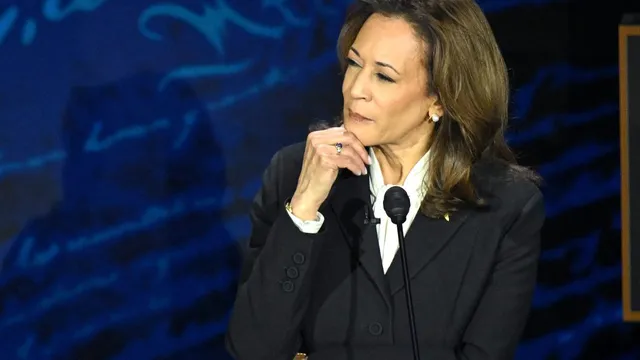
Trump labels Harris' father a Marxist amid economic discussions
2024-09-30 00:00- Donald Harris, a professor at Stanford, was labeled a 'Marxist' by President Trump during a political discussion.
- Economist Peter Blair Henry defended Harris, noting their joint efforts to advise Jamaica on free-market policies aimed at reducing poverty and public debt.
- Their work has led to significant economic improvements in Jamaica, demonstrating the disparity between political narratives and the realities of economic contributions.
Express your sentiment!
Insights
In the United States, President Trump labeled Kamala Harris' father, Donald Harris, a 'Marxist' during a political discourse. This characterization was challenged by Stanford economist Peter Blair Henry, who highlighted that both he and Donald Harris have worked together to advise the Jamaican government on free-market strategies aimed at reducing poverty and public debt. Their collaborative efforts reflect a pragmatic approach to economics, emphasizing the importance of reducing bureaucratic barriers and attracting foreign investment. Henry described Donald Harris as a center-right economist, contradicting Trump's portrayal. The economic policies they advocate align with the 'Washington Consensus,' which promotes free-market reforms for developing nations. Their work has contributed to significant economic improvements in Jamaica, including a reduction in national debt from 144% of GDP in 2012 to 72% by 2023. This context illustrates the complexities of political narratives and the importance of understanding the actual economic contributions of individuals beyond partisan labels.
Contexts
In recent years, Jamaica has embarked on a journey of economic reform, spearheaded by the Economic Growth Council (EGC). This body has played a pivotal role in advising the government on initiatives aimed at stimulating economic growth. Through a series of quarterly consultations with the Jamaican public, the EGC has gathered insights and recommendations that are crucial for shaping policies that can enhance the nation’s economic landscape. Despite the commitment to achieving a primary surplus of 7 percent of GDP, the country faces challenges, including high debt-service costs that limit government spending on essential areas like infrastructure and social assistance. Jamaica's economy has historically struggled, characterized by low productivity in services, limited technological adoption, and a challenging business environment. The COVID-19 pandemic exacerbated these issues, leading to significant learning disruptions that threaten the future earning potential of students. Additionally, Jamaica's heavy reliance on imports and tourism makes it vulnerable to external shocks, particularly climate-related events that could undermine growth and poverty reduction efforts. However, recent data indicates a current account surplus of 2.5 percent of GDP, suggesting some resilience in the economy. The path to recovery has been marked by a significant reduction in public debt, which has fallen by about 50 percent of GDP since the implementation of the Extended Fund Facility in 2013. This achievement is attributed to strong bipartisan support for fiscal discipline and a social consensus that spans various sectors, including civil society and unions. The Economic Programme Oversight Committee (EPOC) has been instrumental in championing these reforms, ensuring that commitments are met and structural issues are addressed. As Jamaica continues to navigate its economic challenges, the lessons learned from past reforms and the ongoing commitment to collaboration among stakeholders will be vital. The nation stands at a crossroads, with the potential for sustainable growth on the horizon, provided that the right policies and partnerships are maintained.